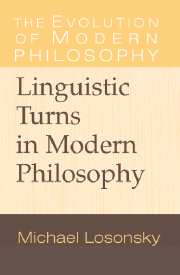2 - The Road to Locke
Published online by Cambridge University Press: 05 June 2012
Summary
John Locke's linguistic turn in his Essay Concerning Human Understanding was the culmination of an intellectual evolution from Plato to Hobbes that steadily moved natural language to the center stage of philosophy. An important feature of this development is the legacy of Renaissance humanism. Reacting to the distortions of ordinary language when seen through the prism of syllogistic logic, the humanists elevated the role of natural language by making ordinary usage of natural language a standard for philosophical style and critique. The needs of formal logic distorted natural language, whereas ordinary usage, which included public oratory, preserved natural language. By turning to the diversity of purposes people have when ordinarily using language, humanist writers also began to tie language to psychology instead of logic. The concern for the systematic features of language and its underlying logical structure that marked Scholastic philosophy was to be transformed later by Leibniz in light of Locke's linguistic turn, as we will see in Chapter 3, but the road to Locke is a road that leads away from traditional logic and, as Locke put it, to “another sort of Logick and Critick, than what we have been hitherto acquainted with” (1975, 721, IV.21.4).
Plato
Before Plato (427?–347? b.c.e.) there is some discussion of linguistic issues. For example, Pythagoras argued that the connection between names and their referents is natural, not arbitrary; Parmenides distinguishes between true and false names in his argument against the existence of real difference and change; and the Sophists, particularly Protagoras, paid attention to the grammatical structure of natural language.
- Type
- Chapter
- Information
- Linguistic Turns in Modern Philosophy , pp. 22 - 51Publisher: Cambridge University PressPrint publication year: 2006



